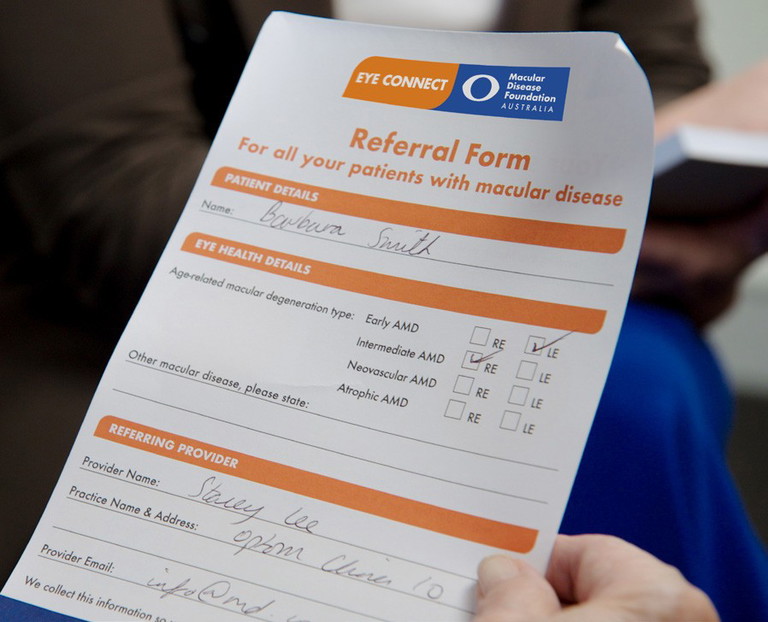minews
MDFA Releases Eye Connect and Research Impact Data
Macular Disease Foundation Australia (MDFA) has confirmed a positive response from the people participating in its new Eye Connect community service.
Launched earlier this year, MDFA’s free service offers people living with age-related macular degeneration (AMD) access to evidence-based health information, practical advice, and emotional support in between appointments with their eye health professional. It’s the first comprehensive service of its kind in Australia.
A recent evaluation of the service conducted by MDFA, surveying the first 150 Eye Connect participants, revealed:
• 98% of respondents would recommend the service to their family or friends.
• 75% reported that the service positively impacted their general wellbeing.
• The diagnosis of most people accessing the service was neovascular AMD (56%); followed by geographic atrophy (26%). Early AMD represented 13%, and 5% reported having intermediate AMD.
• The service users were predominantly women (81%) and were aged 70 years or more (82%), with the largest proportion aged 85 years and over.
“I am grateful to be a part of this program,” said Helen Evans,* an Eye Connect participant who was diagnosed with AMD in November last year.
“My understanding of AMD has significantly improved. All the questions I had during my initial diagnosis were answered, and the followup calls from the Macular Disease Foundation team have been very helpful in resolving any remaining doubts I may have had.
“I feel like I have someone besides my doctor whom I can turn to and clarify my doubts,” Ms Evans said.
MDFA CEO Dr Kathy Chapman said the evaluation also provided a solid foundation for understanding user perceptions and identifying areas to improve and grow Eye Connect’s offerings.
“We know that many people living with macular disease have difficulty remembering their eye professional’s advice, so it is very encouraging to see that people are benefiting from the additional information and support we’re providing through Eye Connect,” said Dr Chapman.
“This early feedback has also given us insight into how we can better support and tailor the service to meet the needs of our growing number of participants. We plan to expand the service to support other macular conditions in the future.
“Supporting eye care professionals to improve the health and wellbeing of patients is a key priority for Macular Disease Foundation Australia. We welcome more referrals for Eye Connect.”
Eye health professionals can refer via Oculo, or visit: mdfoundation.com.au/healthprofessional/refer-to-eye-connect.
RESEARCH GRANTS OPEN
Meantime, MDFA has announced that research grant applications have opened, with two streams of funding available. Grants of up to AU$200,000 are available for projects of one to three years’ duration while the Grant Family Fund awards up to $50,000 per project for innovative ‘blue sky’ research projects for early career researchers.
Over the past decade, the organisation has become Australia’s largest non-government source of funding for macular disease research. Its Research Grants Program has contributed valuable evidence to the macular disease knowledge base in Australia and internationally.
MDFA recently evaluated the impact of its Research Grants Program, which showed high value outcomes including journal publications, career advancements, and further grant funding success.
• 29 funded researchers have had their work published in close to 100 articles in leading scientific journals internationally,
• 80% of lead researchers who received MDFA funding earned a promotion or were awarded a fellowship,
• 60% of researchers funded were ophthalmologists or optometrists,
• 64% of lead researchers funded were women,
• 20% of researchers funded were rising stars with less than five years’ experience, and
• 50% of lead researchers reported follow-on funding and grant success directly linked to MDFA-funded research.
*Patient name changed for anonymity.
